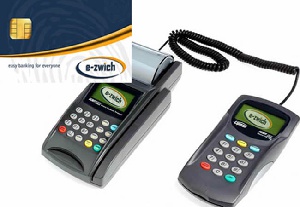As the country makes strides in deepening electronic transactions, so have criminals become more adroit at outwitting e-payment systems in order to steal.
While individual institutions are investing heavily in putting layers of security in place and bolstering their systems, they are also frustrated that government is playing catch-up in a fast-paced environment.
George Babafemi, Chief Operating Officer of eTranzact, Ghana - an e-payment solutions provider, believes government needs to be up and doing.
“Government will be able to drive everybody in the right direction with rules, regulations and sanctions. It can go deeper to find out the kinds of fraud that are happening, at each level and on which platforms, to gather the needed statistics and act on them accordingly,” he told the B&FT.
“Everybody has a major role to play, but government’s leadership is crucial to drive up the system’s security. Currently, it is only MTN that is aggressively warning its customers to be wary of fraudsters. Meanwhile, there are fraudsters attacking fintech platforms, banks and the other telcos,” he said.
His comments come right on the heels of a report released by the Payment Systems Department of the Bank of Ghana, which indicates that while the mobile money platform has the potential to drive the country toward a cash-lite economy and deepen financial inclusion, operators and banks will have to strengthen internal controls to minimise the occurrence of fraud.
But Mr. Babafemi pointed out that government’s aggressive leadership could significantly reduce the menace of fraud on all platforms - citing the example of how government’s directive, with timelines, has led to the replacement of magnetic stripe ATM cards with chip-embedded ones when fraudsters were quickly and easily cloning the former.
“That is a typical government-led initiative and it has worked to perfection, whereby magnetic stripe ATM cards are out of the system and now chip-embedded ones are the new norm,” he said.
To him, it is only the government through the central bank that can introduce and insist on players adhering to international standards such as ISO certifications.
“These international standards repose confidence in the institutions and show that they have, at least, put in some basic measures. These standards must be constantly renewed to include the latest features,” he urged.
“The battle against fraud is an ongoing battle and cannot be totally eliminated, but can be significantly reduced if government takes the lead and industry players follow,” he added.
The UN-based Better Than Cash Alliance recently released a report documenting Ghana’s progress in creating an economy where everyone can pay and get paid digitally, instead of by cash. The results show the country has made significant gains, including almost 100 percent of government payments to people and payments within government now processed digitally.
The findings also reveal there are opportunities for providing more choices to customers. This move is already translating into direct benefits to people, particularly women; support for small businesses, and cost savings for government.
The data also predicts that if government continues to make progress, savings could reach over GH¢250million each year - which may result in more than GH¢1billion by 2020.
The report provides key insights on the status of digital payments in Ghana and tangible recommendations on how to successfully move forward.
“In particular, three priorities emerged to help government and citizens achieve the most benefits: investing in infrastructure for digital public utility payments; digitising payment of government fees and fines; and encouraging digital payments in the Fast Moving Consumer Goods (FMCG) value chain to support digitisation of small retailers and customers.”
Business News of Wednesday, 18 October 2017
Source: thebftonline.com
Government tasked to lead fight against e-payment fraud
Entertainment

Chez Amis CEO addresses NACOC arrest allegations
Opinions










